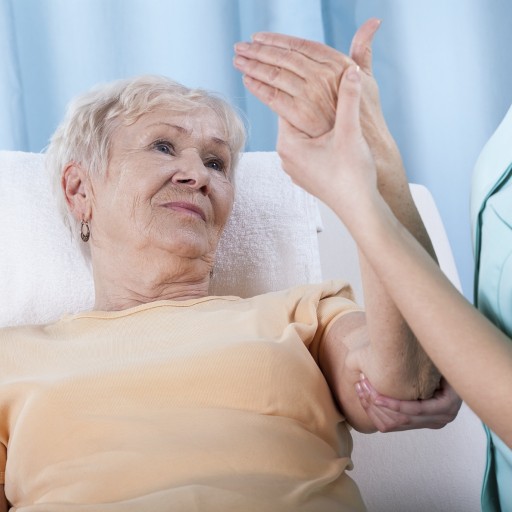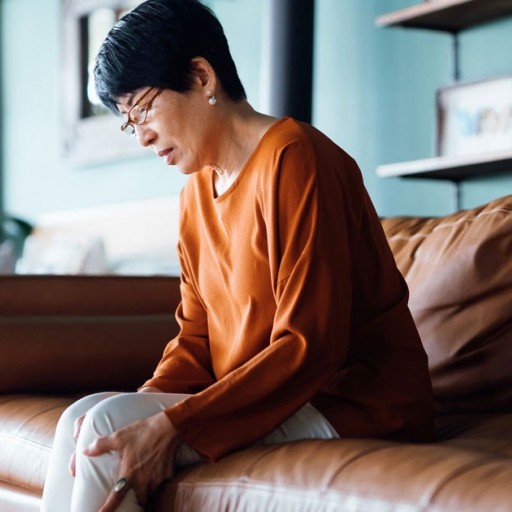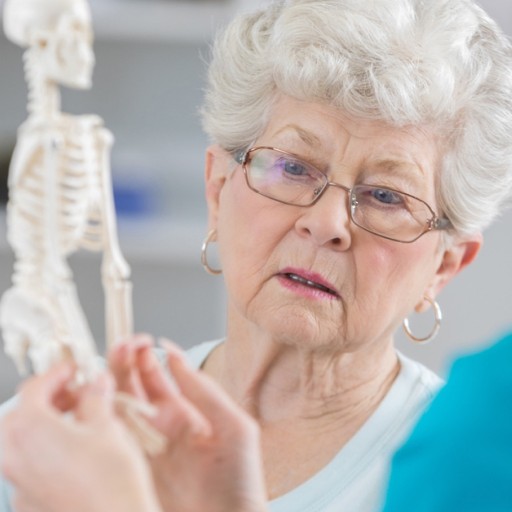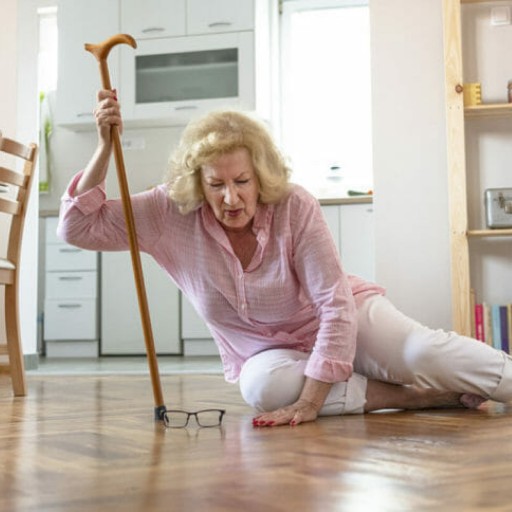Advertisement
Protecting bone health is key to maintaining independence and improving quality of life for older adults. Osteoporosis and fractures are common health problems among older adults in the United States.
As we age, bone density gradually decreases, causing bones to become brittle and more susceptible to fractures. Fortunately, there are a variety of ways to help seniors protect their bone health and prevent bone loss.
The Basics of Bone Health
Bones are the scaffolding of the human body, supporting all the activities we do in our daily lives. When young, the body's bones continue to grow and repair themselves. However, as we age, bone regeneration slows down and bone density decreases.
For women, the decrease in estrogen after menopause accelerates bone loss. Although men lose bone density at a slower rate, they are equally at risk for osteoporosis. Therefore, older adults need to pay special attention to their bone health to avoid problems such as fractures and osteoporosis.
I. Protecting bones through diet
Diet plays a vital role in maintaining bone health. Certain nutrients are particularly beneficial to bone health, while deficiencies in these nutrients can lead to weakened bones.
1. Calcium
Calcium is a major component of bones, so ensuring adequate calcium intake is a top priority for protecting bone health.Women over 50 and men over 70 need to consume 1,200 milligrams of calcium per day. Calcium-rich foods include:
- Dairy products (milk, yogurt, cheese)
- Green leafy vegetables (kale, spinach)
- Tofu
- Fortified foods (such as fortified cereals and orange juice)

2. Vitamin D
Vitamin D helps the body absorb calcium and a deficiency can lead to weaker bones. Vitamin D intake is even more important for older adults because their skin's ability to make vitamin D decreases due to less outdoor activity. Older adults can get vitamin D in the following ways:
- Exposure to sunlight (10-30 minutes a day)
- Vitamin D-rich foods (e.g. fish, egg yolks)
- Vitamin D supplements
According to the American Osteopathic Association, adults over the age of 50 should consume 800 to 1,000 international units of vitamin D per day.
3. Other important nutrients
In addition to calcium and vitamin D, older adults should include enough protein, magnesium, and vitamin K in their diets. These nutrients help maintain bone strength and minimize bone loss. Protein comes from fish, chicken and beans, magnesium can be obtained by eating nuts, seeds and whole grains, and vitamin K is found mainly in green vegetables.
II. Exercise and Bone Health
Maintaining an active lifestyle is equally important for older adults. Research shows that exercise not only increases bone density, but also improves muscle strength and balance, reducing the risk of falls. The following types of exercise are particularly beneficial for bone health:
1. Weight-bearing exercise
Weight-bearing exercises are those that require the body to work against gravity. These types of exercises can stimulate bone growth and increase bone density. Weight-bearing exercises for older adults include:
- Walking
- Jogging
- Stair climbing
- weight lifting

2. Resistance training
Resistance training (e.g., using resistance bands or dumbbells) builds muscle strength, which reduces the risk of falls and fractures. For older people, gradually increasing the intensity of resistance training can help them maintain bone health more effectively.
3. Balance training
Advertisement
Falls in older adults are one of the leading causes of bone fractures. Through balance training (such as yoga or Tai Chi), you can enhance your sense of balance and reduce the chance of falling. This type of training also enhances muscle flexibility and helps older people walk and move more steadily.
Lifestyle Adjustment
Apart from diet and exercise, there are other lifestyle adjustments that older people can make to protect their bone health.
1. Quit smoking
Smoking negatively affects bones, leading to decreased calcium absorption and accelerated bone loss. Older adults who are smokers should quit not only to help their bone health, but also to improve their overall health.
2. Limit alcohol intake
Excessive alcohol consumption can affect bone metabolism and lead to bone loss. It is recommended that older adults limit their alcohol intake to no more than two drinks per day for men and one drink per day for women to protect their bones.
3. Adequate sleep
Sleep is essential for the body to repair itself and for the immune system to function properly. Lack of sleep affects bone repair and renewal, so older people should ensure 7-8 hours of quality sleep every day.

IV. Preventing Falls
For seniors, falls are the most common cause of bone fractures. By taking some simple preventive measures, you can effectively reduce the risk of falling and protect your bones from injury.
1. Home environment adjustment
- Install non-slip floor mats, especially in slippery areas such as bathrooms and kitchens.
- Ensure adequate lighting in the home to avoid falls due to poor vision.
- Install handrails in the bathroom to help older people maintain balance when getting in and out of the bathtub or shower.
2. Wear appropriate eyeglasses
Vision loss is one of the leading causes of falls in older adults. Regular vision checks and making sure you wear the right eyeglasses can help older adults see their surroundings more clearly and reduce the likelihood of falls.
3. Wear appropriate shoes
Choosing shoes with good grip and foot support and avoiding slippers or high-heeled shoes that are easy to slip on will help older people stay stable when walking.

V. Medications and bone health
Some older adults may need medications to help protect bone health, especially those who have been diagnosed with osteoporosis.
1. Osteoporosis medications
Doctors may prescribe osteoporosis medications, such as bisphosphonates, for older adults with osteoporosis. These medications help slow bone loss, increase bone density, and reduce the risk of fractures.
2. Hormone replacement therapy
For postmenopausal women, hormone replacement therapy (HRT) may help slow bone loss caused by declining estrogen levels. However, HRT carries some risks, and older adults should discuss the pros and cons with their doctor to determine if it is appropriate.
3. Calcium and vitamin D supplements
If the diet does not meet calcium and vitamin D intake needs, seniors may consider taking supplements. These supplements can help maintain bone health, especially during the winter months or in areas with low sun exposure.

VI. Regular Physical Examinations and Bone Density Tests
Regular medical checkups and bone density tests are important measures for older adults to prevent osteoporosis and bone fractures. Bone density tests can help doctors assess the bone health of older people and provide personalized treatment recommendations.
In particular, postmenopausal women and men over the age of 70 should have a bone density test every few years to detect early signs of osteoporosis.
Protecting bone health is critical to the quality of life of older adults. Through a healthy diet, regular exercise, cessation of smoking and limiting alcohol consumption, fall prevention, and regular medical checkups, older adults can effectively reduce the risk of osteoporosis and fractures.
With the guidance of a doctor, medications or supplements are sometimes needed to help keep bones strong. Bone health is not only about the physical health of older adults, but also about their ability to live independently and their quality of life. Every older adult can protect their bones by adopting an active lifestyle and enjoying a healthy, fulfilling later life.
Advertisement





